English Editions
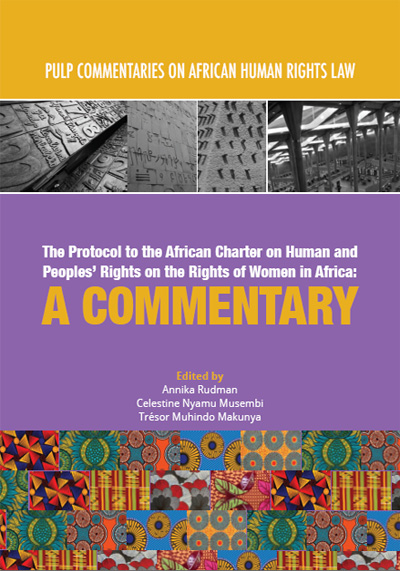
The Protocol to the African Charter on Human and Peoples’ Rights on the Rights of Women in Africa: a commentary
The first in a series of PULP commentaries on African human rights law, under the series title: PULP Commentaries on African human rights law. This Commentary aims to be a ‘one-stop-shop’ for anyone interested in the Maputo Protocol, such as researchers, teachers, students, practitioners, policymakers and activists.
Download book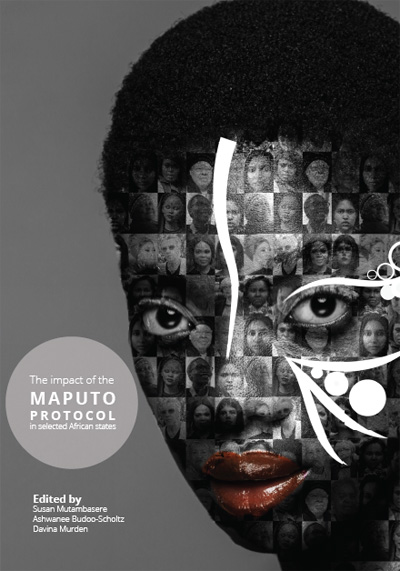
The impact of the Maputo Protocol in selected African states
This book assesses the impact and effectiveness of the Protocol to the African Charter on Human and Peoples’ Rights on the Rights of Women in Africa (Maputo Protocol) in 16 state parties. These countries are: Burkina Faso, Cameroon, Côte d’Ivoire, the Democratic Republic of Congo, Ethiopia, Eswatini, the Gambia, Ghana, Kenya, Lesotho, Malawi, Mauritius, Nigeria, Sierra Leone, Tanzania, and Zimbabwe.
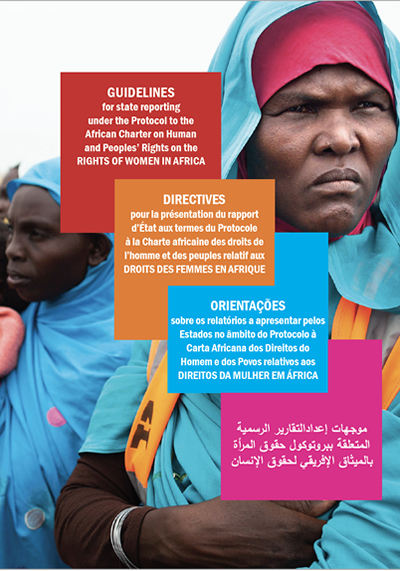
Guidelines for State Reporting
Pursuant to article 26 of the Protocol to the ACHPR on the Rights of Women in Africa, read together with article 62 of the ACHPR, each state party to the Protocol has agreed to submit every two years, from the day the Protocol comes into force, a report on the legislative, judicial, administrative and other measures taken with a view to ensure full realisation of the rights and freedoms contained in the Protocol.
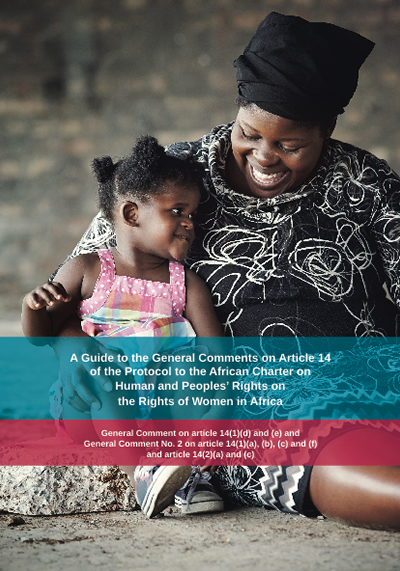
A Guide to General Comments on Article 14
These General Comments clarify Article 14 of The Maputo Protocol and expands on the steps that governments must take to realise to progressively realise the rights set our in Article 14 of the Maputo Protocol.
Download file
Litigation and Advocacy Tools
This manual is intended to guide litigation and advocacy aimed at ending harmful practices in Africa. The manual is focused on two harmful practices in particular: child marriage and female genital mutilation (FGM), both of which are practiced extensively in Africa and which have especially harmful and long term effects.
Download file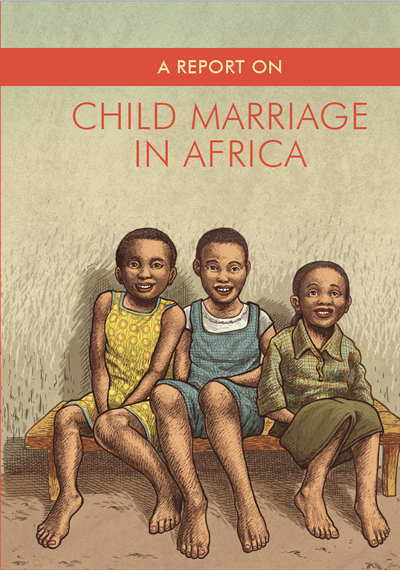
Child marriage report
This report examines the prevalence, causes and impacts of child marriage in Africa. It sets out the legal frameworks that prohibit child marriage and describes some of the circumstances that result in laws being ineffective in practice.
Download file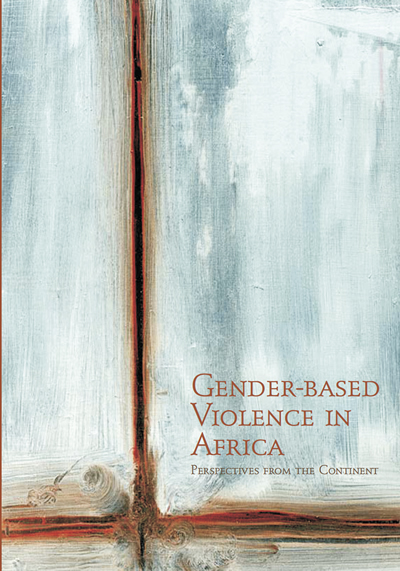
Gender-based violence in Africa
This advocacy tool presents the findings of research on adherence to the African Charter on Human and Peoples’ Rights on the Rights of Women in Africa by six Southern African Development Community (SADC) countries: Lesotho, Malawi, Namibia, South Africa, Tanzania and Zambia
Download file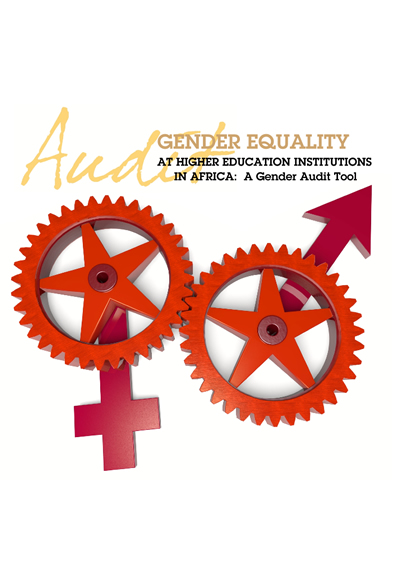
Gender Equality
The Gender audit tool for Gender Equality at Higher Education Institutions in Africa has been prepared by the Centre for Human Rights, Faculty of Law, University of Pretoria, with funding from the Norwegian Ministry of Foreign Affairs, through the Royal Norwegian Embassy in South Africa.
Download file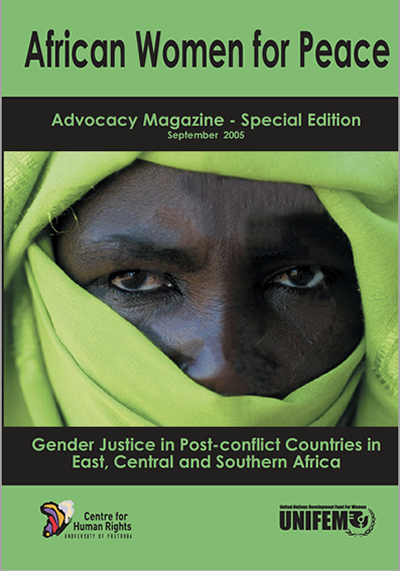
"African Women for Peace"
Advocacy Magazine Special Edition: September 2005 Gender Justice in Post-conflict Countries in East, Central and Southern Africa Published by the Centre for Human Rights and the United Nations development Fund for Women (UNIFEM)
Download file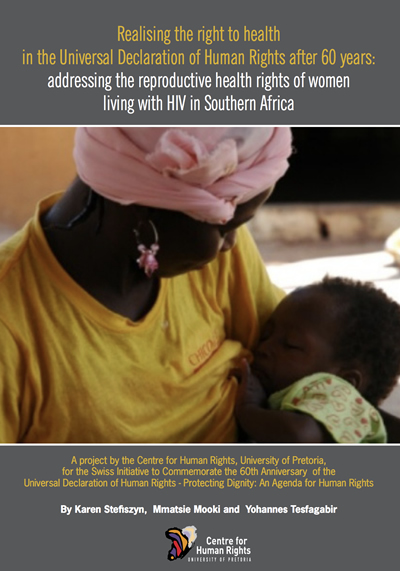
Right to health in the Universal Declaration of Human Rights
A project by the Centre for Human Rights, University of Pretoria, for the Swiss Initiative to Commemorate the 60th Anniversary of the Universal Declaration of Human Rights - Protecting Dignity: An Agenda for Human Rights
Download file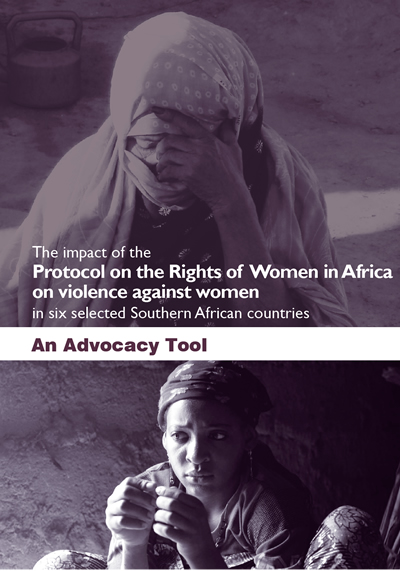
The impact of the Protocol
This advocacy tool presents the findings of research on adherence to the African Charter on Human and Peoples’ Rights on the Rights of Women in Africa by six Southern AfricanDevelopment Community countries: Lesotho, Malawi, Namibia, South Africa, Tanzania and Zambia.
Download file![]()
French Editions
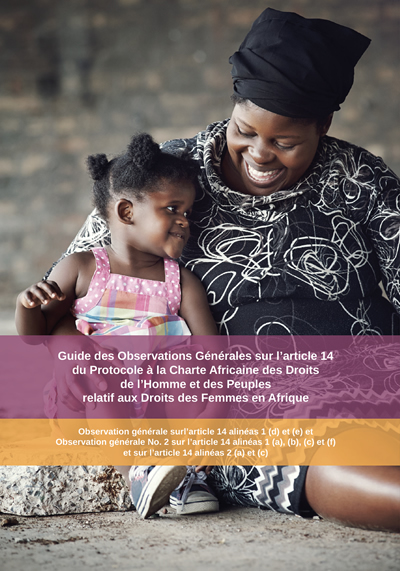
Violence sexiste en Afrique
Cet outil de plaidoyer présente les résultats de recherches sur l'adhésion à la Charte africaine des droits de l'homme et des peuples sur les droits des femmes en Afrique par six pays de la Communauté de développement de l'Afrique australe (SADC): Lesotho, Malawi, Namibie, Afrique du Sud, Tanzanie et Zambie
Télécharger ce fichier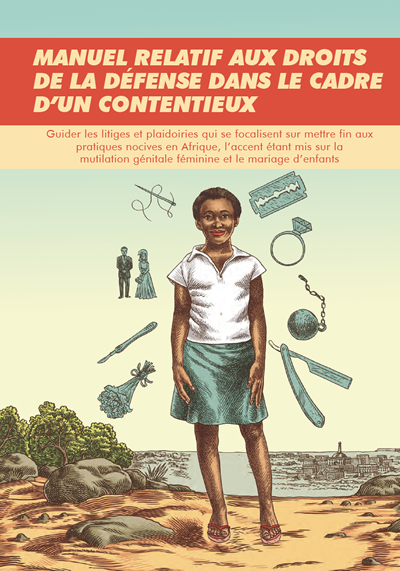
Outil sur les pratiques néfastes
Ce manuel est destiné à guider les litiges et les plaidoyers visant à mettre fin aux pratiques néfastes en Afrique. Le manuel est axé sur deux pratiques néfastes en particulier: le mariage des enfants et les mutilations génitales féminines (MGF), qui sont largement pratiquées en Afrique et qui ont des effets particulièrement nocifs et à long terme.
Télécharger ce fichier
Lignes directrices pour les rapports d'État
Conformément à l'article 26 du Protocole à la CADHP sur les droits des femmes en Afrique, lu conjointement avec l'article 62 de la CADHP, chaque Etat partie au Protocole a convenu de soumettre tous les deux ans, à compter du jour de l'entrée en vigueur du Protocole, un rapport sur les mesures législatives, judiciaires, administratives et autres prises en vue d'assurer la pleine réalisation des droits et libertés énoncés dans le Protocole.
Télécharger ce fichier
Lignes directrices pour les rapports d'État
Ce rapport examine la prévalence, les causes et les impacts du mariage des enfants en Afrique. Il définit les cadres juridiques qui interdisent le mariage des enfants et décrit certaines des circonstances qui font que les lois sont inefficaces dans la pratique.
Télécharger ce fichier
